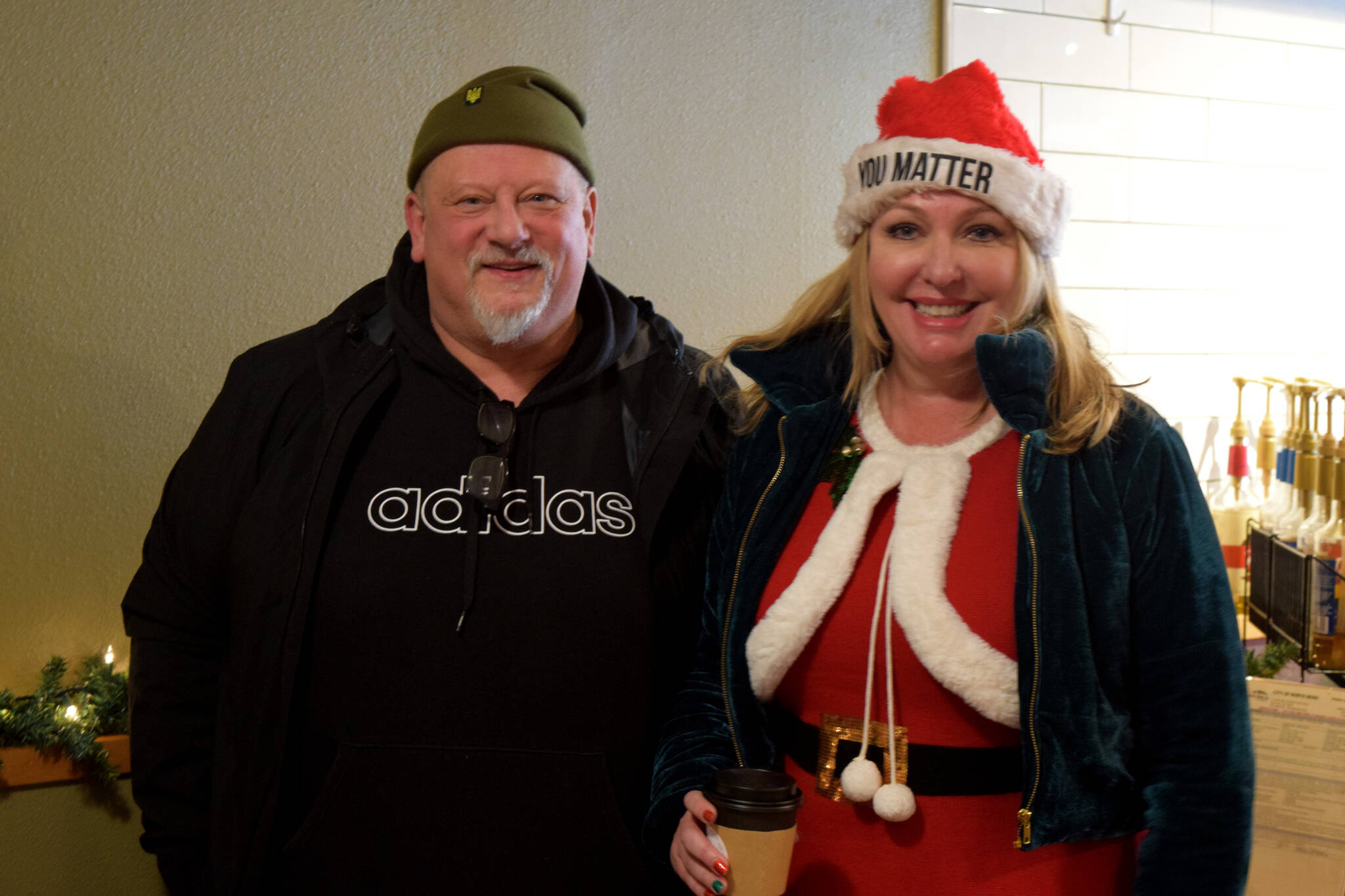Sitting in her coffee shop, dawning a Santa hat with the words “you matter” inscribed across the brim, Tonya Guinn is on a mission to make sure youth struggling with addiction know they are valued.
Guinn is the executive director of Trail Youth Coffee, a nonprofit coffee shop in North Bend that provides a safe space for youth. She has seen an increased need among youth struggling with alcohol and substance abuse. There are few resources in the Snoqualmie Valley for youth who do not have a trusted adult or peer that they can turn to, she said.
“We’ve seen many youth that are struggling with addiction, who say they’ve lost hope,” she said. “So many youth don’t know their worth or value.”
It is something Trail Youth is working to change.
This month, the coffee shop re-launched its weekly youth substance abuse recovery group, a space for young adults to share their experiences and get resources on the road to recovery. The recovery group meets at 7 p.m. every Thursday inside Trail Youth Coffee, 226 Southeast North Bend Way.
It marks the return of a much-needed program that was suspended by the pandemic after running continuously for nine months. The meeting offers the only youth-oriented recovery group in the Snoqualmie Valley, and one of a few on the Eastside.
“It’s powerful when youth are able to share stories that they’ve gone through to help someone else that’s going through the same thing,” Guinn said.
The group is being led by Tom Armour, a trained alcohol and drug counselor who has been sober himself for more than 30 years. Armour said the goal is for him to lead the group for the first six to 12 months before turning it into a youth-led program.
Each meeting will offer a safe space for youth to share their experiences and feature a speaker who either went through recovery as a youth or is a youth in recovery. Armour said the program will focus on both alcohol and other drugs, including fentanyl.
“Our focus is surrounding them with people they can look to that have walked their walk,” he said. “If we can bring lightness in and give them tools, the hope is they find their way out of it.”
While data from the 2021 Health Youth Survey found fewer Washington state youth report using alcohol and other drugs than prior years, health officials attribute at least some of that decrease to the environment of the pandemic, with children at home and in close proximity to their parents.
Armour said he has seen a number of youth turn to drugs in wake of the pandemic, looking to cope with the trauma and feelings of isolation caused by the long-term disruption. He likened the feelings to those of post-traumatic stress disorder.
“We want the youth in Snoqualmie Valley to know this is a place where they’re loved and cared for,” he said. “Where they can walk in and share what they’re going through.”
For Guinn, she knows firsthand the consequences of drug abuse. She lost her brother at 20 years old when he was struck by a drunk driver in his 20s.
But, serving around 225 different youth each month, she has also experienced how programs at Trail Youth have helped large numbers of youth transition into healthier and more productive lives. It’s something she is hopeful the recovery group will also contribute too.
“We’re seeing what offering hope can do,” she said. “That’s what drives me every day. We want to encourage people, offer help and give them the tools and resources for what so many are struggling with.”


